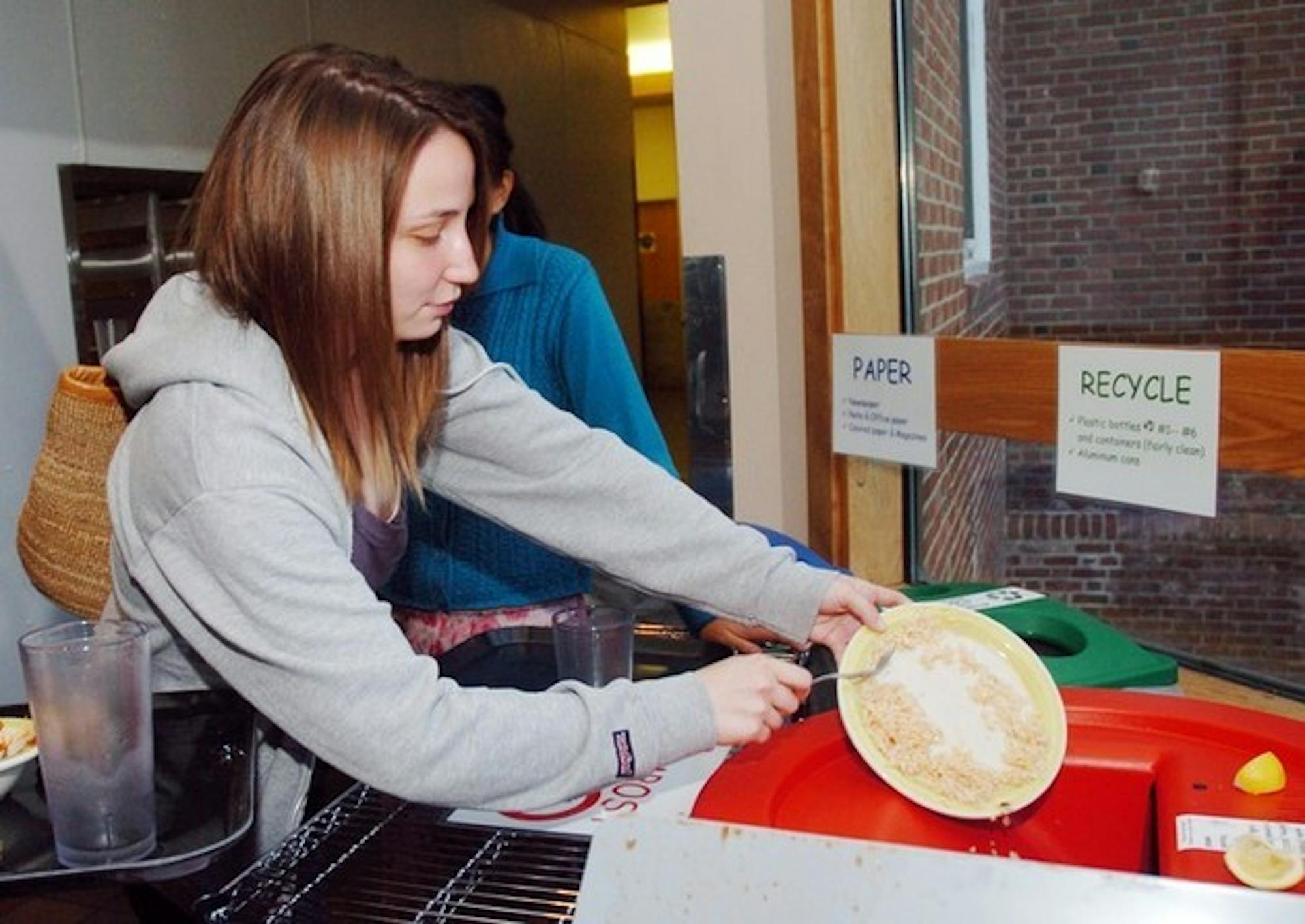The no-waste project is the first of its kind at any university, according to Sustainability Director Jim Merkel, who was the driving force behind the changes. To help students become accustomed to sorting their dining waste into trash and compost bins, Merkel placed educational posters and displays outside Homeplate.
"This display is about education," Merkel said. "I want students to understand why you wouldn't put plastic in the compost container."
Student employees were assigned the task of showing students how to sort compostable items from trash items for the initial two weeks. Merkel hopes that students will continue to remain environmentally conscious even after the program's initiation.
"Our garbage footprint per person at Dartmouth is 4.6 acres," Merkel said in reference to the amount of land and water a student uses per year. "To put that in perspective, there are 81 nations on Earth with smaller footprints for their entire lifestyle."
Despite this statistic, Merkel remains optimistic about the new waste-free dining program, which has been six months in the making.
Associate Director of Dining Services David Newlove noted that despite the initial challenges of changing to sustainable dining, it was an important switch.
"It is quite substantial," Newlove said. "We've looked at different types of packaging that are compostable and how to implement them."
Newlove said that the challenge comes from the fact that many of DDS' vending retailers have only recently started to offer compostable products. DDS is still searching for compostable yogurt containers, ice cream novelty wrappers and straws.
"We are rethinking how retail food operations sell and display food by balancing displaying the food in an appealing way and the simplicity of presentation that compostable containers bring," Newlove said.
Student body participation is crucial to success of the new no-waste process, Merkel said, so he helped create the Sustainable Dining Club.
The club's 30 members each received a sustainable kit that included a cloth napkin, washable to-go container, eco mug, Nalgene bottle and silverware. Encouraged by the feedback, Merkel is hoping to increase the club's membership to 100 members by Sept. 25.
"I want students to understand that with this kit you can eat food without producing garbage," Merkel said.
According to Merkel, the new sustainability measures were not only more environmentally sound but also more economically beneficial.
"Dartmouth spends $1.19 per person on procuring, storing and disposing of to-go containers that become garbage within the day," Merkel said. "With over 4,000 undergraduates, this cost really adds up. By comparison, the sustainable dining kit costs about $20 and will pay for itself in 20 days."
While most of the student response to the initiative has been positive, some students remain puzzled and aloof about the new program.
"I'm glad they finally started it -- whatever it is," Li-Ou Gong '08 said.
Other students are eager to offer their own suggestions on how to improve sustainability.
"I think they should up it," Ari Vagelatos '07 said. "They should use like cardboard trash cans and like make everything cardboard 'cause that's sustainable. Get rid of the plastic."




